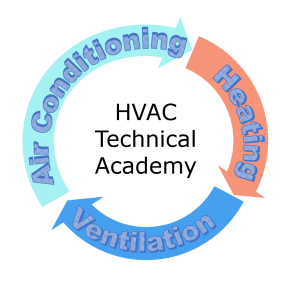Stuck staring at a blank page? Dr. Kathryn Broyles, Ph.D., Program Director of General Studies at American Public University/American Military University, shares techniques on how to transform the stare into a stellar document.

It’s 2:00 am. Crumpled paper covers your table; your pen is leaking onto the placemat, and cups of coffee, all at various stages of full surround you. Your eyes are bleary, your hair disheveled and despite your best efforts at super-caffeinated, latte-reinforced creativity, the blinking cursor on your lap-top has you hypnotized. You seem unable to make your fingers move it across the keyboard– or the cursor across the page—unable to compose the brilliant argument you’d hoped to as to why you should be given this job….
What do you do? How do you get past writer’s block? How do you get started on that cover letter, resume, or personal statement that may just change your life?
Tip #1 – NEVER stare at a blank piece of paper or a blinking cursor.
Humans are social creatures. We need interaction and conversation. Even in the solitary task of writing, we need to be in a conversation with ourselves and with the words on the page. So rather than shutting down that conversation with the blank stare of a blank page, get the conversation started! Begin in the middle, even at the end if you have to. Write anything, but write. You might even begin simply by writing that you don’t know what to write about– but the secret to getting past a block and getting words on the page is that you simply have to begin.
Once there is text, some text, any text, on the page, you’ll find that a whole different part of you can begin to interact, begin to have a conversation (in your head and on the page); essentially, you can begin to write. In fact, you’re already writing!
Tip #2 – DON’T censor yourself until it’s time to revise and edit.
Now that you’ve gotten words on the page, some words, any words. Now that you’ve begun the theoretical conversation with yourself, the page, and the future readers of your text, don’t shut down the flow of words with worry. Don’t worry about whether this is the best way to say that, whether you have any dangling modifiers or comma splices, whether you sound smart enough, or overqualified. Simply write. Write and write, addressing issue after issue that may be relevant to the task at hand.
It’s much easier to come back to a wordy rough draft later, to cull the best parts and delete the appalling. But don’t stop your initial flow of words to do it. Don’t censor yourself. Once you have everything down you might possible want to say, THEN you can become your own worst critic, but not before.
Tip #3 – Take advantage of relational thinking and logic.
You likely have much to offer a future employer. You’re more than likely qualified for the job you’re after and have a genuine interest in doing well in such a position. That’s why applying to it attracted you in the first place. To communicate most effectively with any reading audience, however, you want to provide illustrations and examples that support your claims. In this case, you’re claiming to be qualified! So, how do you prove it? What evidence can you offer?
If writer’s block has you struggling to come up with ideas, tap into the natural, relational order of an interesting conversation. Remember last week when you asked Joe what he had planned for the weekend and he mentioned going out with the kids for pizza and that led to a conversation on your favorite pizza toppings and on to an argument about who in town has the best pizza and then on to the time in high school when you ate 15 slices in one sitting, and that fact that now you gain 15 pounds just smelling good pizza, and boy, is staying fit while you grow older a challenge?
A conversation about the weekend somehow became a discussion of middle aged strategies for weight loss? It did! And it did so quite logically. You and Joe related one idea to the next, weaving your way through a fascinating conversation. Use this same kind of idea relating to help you head in new directions on the page, working to pull out from your memory and into your writing all the great examples and illustrations you need to help you craft the perfect application documents and make the fullest case for why you should be hired.
It may sound simple, but honestly, the best way to get past writer’s block is to get writing! And use these three tips to help.
Thanks Kathryn, your advice is greatly appreciated as many of us,
especially those writing career documents, blank-out, become
frustrated, and give up before beginning. For those interested in
learning more about American Public University/American Military
University, where they are expanding access to higher education with
more than 100 affordable degrees and certificates to prepare students
for service and leadership in a diverse and global society, visit their
website at www.apus.edu.
Danny Huffman, MA, CEIP, CPRW, CPCC
EducationCareerServices.com
Got Twitter? Shadow me @DannyatECS

 Contact us at (407) 878-0474
Contact us at (407) 878-0474